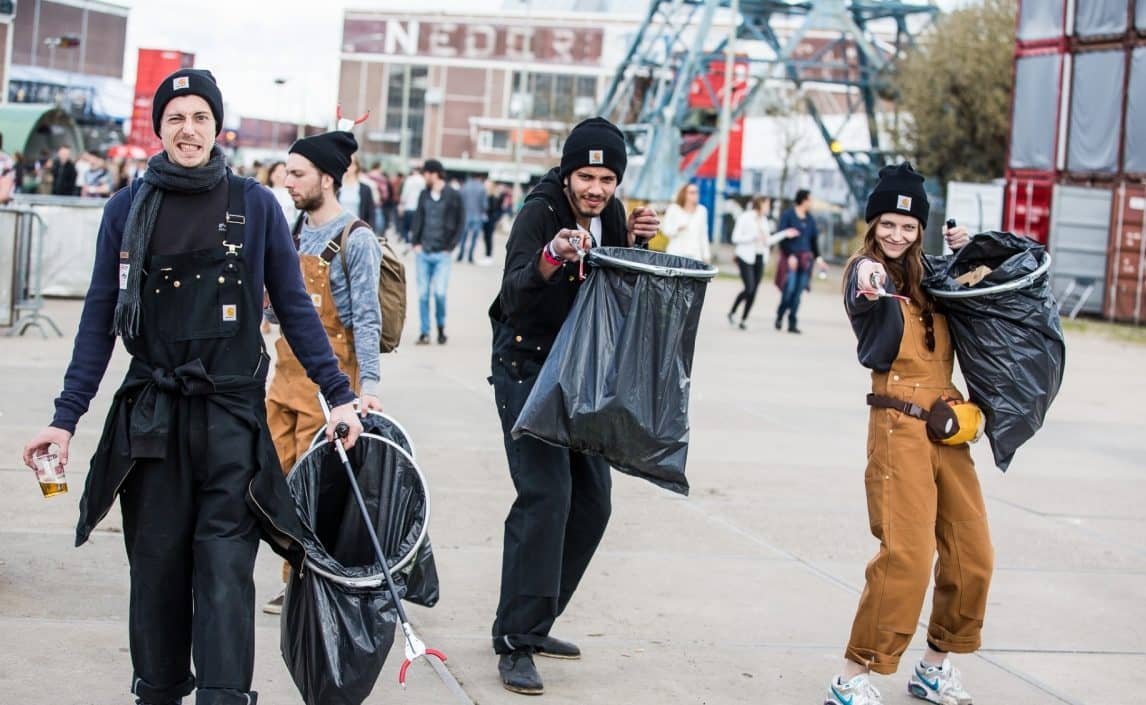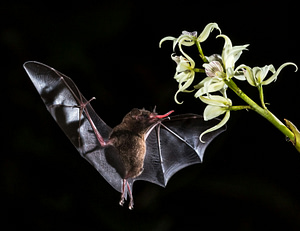Following our partnership with DGTL – an electronic music festival in Amsterdam – Metabolic consultant Nadina Galle takes us through what we’ve learnt about how festivals can move to becoming truly circular.
Festivals have become synonymous with summer, and the season is well and truly underway. More than 1,300 festivals will take place in the Netherlands this year, of which more than 1,000 are music festivals. Amsterdam alone hosts over 300 festivals. With music ranging from techno to classic to pop, there really is a festival for everyone in the Netherlands. But where music goes, infrastructure must follow. It is necessary to provide festival attendees with proper facilities; they require energy, sanitation, catering, water, and waste management. In relation to waste, an average festival goer in the Netherlands generates up to 2,3 kg of waste per day. This is about twice as much waste as an average person generates in their normal daily activities. Considering the number, size, and length of festivals, these numbers are perhaps not that surprising.
Measures to prevent and reduce waste at some festivals have already been implemented. For example, in 2015, DGTL launched the refundable hard cup system to replace disposable plastic cups. For these cups, a small deposit is required, which is returned upon return of the cup at collection points. The cup refunds can even be deposited into your bank account. Post-festival, all dirty cups are returned to the supplier where they are industrially cleaned and inspected. The hard cups keep drinks colder than traditional plastic, they can be reused up to 100 times, and the return system keeps the festival grounds tidier.
Some festivals are setting strict requirements on caterers as well, by permitting only biodegradable cutlery, plates and napkins. But while hard cups and biodegradable tableware may give festival goers the feeling the festival is working on sustainability, they need to be paired with compelling instructions and engagement. In the case of biodegradable tableware, correct separation schemes should be in place. Otherwise, the biodegradable materials will end up in unsorted wastes, where it will not properly decompose and its value will be lost.
Tent waste is another problem facing multi-day festivals with overnight camping. One study estimated one in every four people will leave their tent behind at the end of a festival. Annually, this comes to 25,000 orphaned tents. Solar Weekend festival has partially combated this problem by allowing beachcombers to pick up valuable tents and other supplies by the truckload after the festival. Without large scale tent recycling facilities available, local reuse has stepped in. Another option is to avoid the use of typical plastic-fabric tents, and use a KarTent instead. Dutch-designed KarTents are lightweight cardboard tents which can be reused for up to 2.5 months before being fully recycled, providing a more sustainable alternative for happy campers.
Changing the system
In June 2017, together with Green Events Nederland and DGTL Festival, and following the report we developed on DGTL’s waste streams, Metabolic developed a structured approach to collecting data on, visualizing, and analysing any festival’s waste streams. This research stemmed from the Green Deal “Zero-Waste Festivals”, which was signed in October 2015 to help reduce, separate, and better recycle festival waste. The Green Deal approach aims to remove barriers to sustainable initiatives by connecting private companies, local and regional government, and interest groups with the federal government. The collaboration of this deal included ten festivals (Amsterdam Open Air, DGTL, Extrema Outdoor, Into The Great Wide Open, Mysteryland, Solar Weekend, Welcome to the Future, Zwarte Cross, Vierdaagsefeesten, Welcome to the Village) and the organisations Nederland Schoon and Green Events Nederland. The primary focus of the Green Deal remains reducing litter and waste caused by festival goers.
With the spotlight on festival goers and their trash, it is easy to forget about the waste the festival production itself causes. Metabolic measured all the materials coming in and out of this year’s DGTL festival in what we call a “material flow analysis”. The study showed only a small portion of the total waste is actually generated by visitors themselves (16%), whereas construction and decoration waste added up to 47% of total waste. Waste from festival goers, while not insignificant, is bearing the brunt when it comes to a festival’s green image. While waste reduction measures taken so far have continually put the emphasis on them, it seems interventions should be focused on addressing material wastes from festival management. At Metabolic, we zoom out to examine the bigger picture, and identify the challenges across the whole system and where the leverage points for change exist. To transition to truly circular festivals, we must employ the same systemic approach to cut through the complexity and identify where we can make the most impact.
Ways forward
So what needs to happen next? To come to evidence-based circular interventions, each festival should perform a baseline material flow analysis to understand what they are using, how they are using it, and where it is ending up. Data collection of this kind can help create the necessary insights to reduce and possibly avoid certain waste streams all together. Prior to the festival, it should also become standard for each festival to deliver a waste management and disassembly plan to retain the value of materials. DGTL, in particular, is already taking measures to reduce their overlooked waste streams by rethinking their festival build and emphasizing modularity in their designs. Another option would be to build out a national decoration sharing platform, which could reduce costs, ease logistics, and minimize waste.
Lastly, we must change the narrative. As we move towards a circular economy, we must stop referring to wastes all together and instead move towards “resources”. Zero-waste festivals will become resource-rich festivals as we move forward. Festivals in the Netherlands still have a long way to go before reaching a truly circular state, but the insights from DGTL allow us to take a small peek backstage in terms of material use and waste reduction.
As for all the other resources (such as water and energy) that are needed to produce a festival? Contact us. We’re actively seeking festivals with which we can work together to produce a comprehensive overview of all resource flows.
Be sure to check out our full DGTL report (in Dutch) here.






